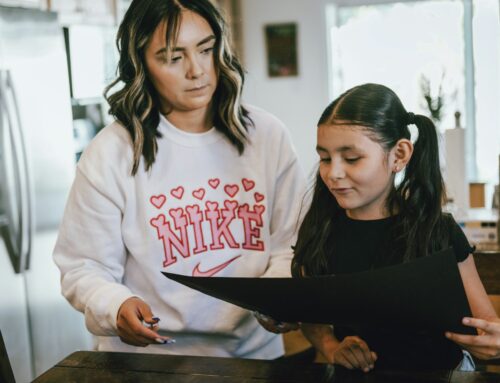 Typically, the first sign that indicates a need for me to investigate possible codependency with a client, is when they introduce themselves to me and describe themselves as “a people pleaser.”
Typically, the first sign that indicates a need for me to investigate possible codependency with a client, is when they introduce themselves to me and describe themselves as “a people pleaser.”
As we continue, I tend to find out that these people have very poor boundaries within their interpersonal relationships.
One of the most prominent researchers into codependency, Melody Beattie, describes codependency like this:
“A codependent person is one who has let another person’s behavior affect him or her, and who is obsessed with controlling that person’s behavior.”
– Codependent No More, 1992 ed.
Have I lost you with that definition? Stick around and we will elaborate on it later within this article.
Another well known researcher in the area of codependency, Pia Mellody, states that codependents have difficulty in the following areas:
- Experiencing inappropriate levels of self-esteem
- Setting functional boundaries
- Owning and expressing their own reality
- Taking care of their adult needs and wants
- Experiencing and expressing their reality moderately
Concerning number one above, Mellody goes on to say that “if codependents have any kind of esteem, it is not self-esteem but other-esteem; which is based on external things such as how one looks, how much money they make, who they know, what kind of car they drive, what kind of job they have, how well their children perform, how powerful and important or attractive their spouse is, the degrees they have earned, how well they perform at activities in which others value, etc” (Facing Codependence, p. 9).
There is nothing wrong with feeling satisfied or a sense of joy from accomplishing the above, but the idea is that if one is looking to the approval of others for their sense of worth, this is other-esteem as opposed to self-esteem. While examining the above factors, you might be thinking, “Isn’t everyone codependent then?!”
The truth is, there are many codependents among us. Social media has not helped with this concept of other-esteem, given that the entire point of social media is essentially to gain approval or recognition by others, instead of merely keeping accomplishments, purchases, experiences, etc. to oneself. When our sense of worth and value comes from other people instead of from knowing our worth and value found in God, we are likely codependent instead of operating from a free place of interdependency.
David Richo states, “In a healthy person, loyalty has its limits and unconditional love can coexist with conditional involvement. Unconditional does not, after all, mean uncritical. You can both love someone unconditionally and place conditions on your interactions to protect your own boundaries. It is building a functional healthy ego to relate intimately to others with full and generous openness while your own wholeness still remains inviolate. It is a great boost to self-esteem to be in touch and intact. This is adult interdependence” (p. 58, How to Be an Adult, 1991).
This allows us to see that even while God loves us unconditionally, it does not mean that He approves of or condones (remains uncritical) of our choices. Approval of choices and unconditional love are not synonymous.
Boundaries
 Many of us have a skewed view of boundaries. Boundaries is not an attempt for us to control others, rather, it is our freedom to decide how much we will participate with others, given their choices. The point of healthy boundaries is to protect what is on the inside of us.
Many of us have a skewed view of boundaries. Boundaries is not an attempt for us to control others, rather, it is our freedom to decide how much we will participate with others, given their choices. The point of healthy boundaries is to protect what is on the inside of us.
Think of it this way – do you lock the doors of your house at night? Is this an attempt to control what is happening outside of your house and on your street? No. This is to protect what is on the inside of your house, where your treasures lie. This is what boundaries do – they protect what is on the inside of you. The way I explain it to my clients is this way – someone struggling with an addiction to alcohol has the right to partake in their addiction as often as they would like to.
There is nothing anyone else can do to control their choices or their behaviors. Boundaries look like this: “You have the right to use your free will to choose to drink. In light of you using your free will to do that, know that I will use my free will to protect what is on the inside of me; thus, I will not be around for it because my job is to protect what is on the inside of me, and being around this isn’t good for me.” It is not manipulation, it is choosing oneself in a way that does not encroach upon the freedom of others.
One of my favorite chapters on boundaries comes from David Richo’s book, How to Be an Adult. In it, he states:
“I know I have lost my boundaries and become codependent when: I don’t let go of what doesn’t work, and it feels like I cannot let go of what could possibly/hopefully work. Codependency is unconditional love for someone else that has turned against oneself.” (p. 59)
The concept of boundaries is directly related to codependency. Poor internal and external boundaries are synonymous with codependency and low self-worth because they correspond with what we allow into our lives and the way we conduct our lives. Children are meant to be dependent upon their parents, this is normal.
Responsible adults know how to address their needs and ask for help when it is truly needed, but make every effort to meet their own needs – obviously, this is concerning the human-to-human dynamic; not the human-to-God dynamic, because as believers, we understand that the only way to live a truly free life is to live with a dependence on God for our every need.
It must be said that just because you struggle with codependency, does not mean that you are a bad, defective, hopeless human being. Most of us learn to become codependent based on our circumstances and the environment we grew up in. We likely saw things modeled in our home that demonstrated poor boundaries, enmeshment, low self-worth, enabling behaviors or other types of ultimately unhealthy behavior.
For those who have loved someone who struggles with addiction, you have likely been taken hostage in a sense and unable to find your way out of a codependent lifestyle because of your love for someone else.
 At one point, codependency may have been a means of survival for you; but we must recognize when it is no longer useful to us and has become an unhealthy and pervasive thread throughout our lives that now hinders our ability to live from a place of wholeheartedness.
At one point, codependency may have been a means of survival for you; but we must recognize when it is no longer useful to us and has become an unhealthy and pervasive thread throughout our lives that now hinders our ability to live from a place of wholeheartedness.
What does it look like to have healthy boundaries then?
I must return to David Richo for my favorite summary of what this looks like (see p. 59-60 in How to Be an Adult):
- By asking directly for what you want in life and pursuing it, you are declaring your identity to yourself and others, which creates a life of liberation as opposed to living in fear, isolation, or bitterness.
- Nurture yourself and allow God to nurture you. Seek wisdom from God and the courage to implement discernment into your life, so that you can identify when a relationship has become abusive, invasive, or hurtful. It helps to have a good support system in place so that others can provide you with honest feedback concerning what they see in your life (groups, therapists, friends, etc.)
- Observe how others treat you and take it as information. Do not get caught up in their drama, but instead, decide from a place of empowerment how much you will accept of what others offer you.
- Confront the addiction in exciting but futureless relationships; looking for happiness where only hurt, and disappointment exists. Maintain a bottom line of how much disappointment, hurt, lies, betrayal you will accept within any relationship dynamic. Pay attention to how others treat you, and act as your own advocate and representative. If you do not do this, who will?
- As adults, we must understand and accept the fact that there is only One who is worthy of our absolute trust – and that is God. Humans are capable of failing us, and we are capable of failing others. We must trust ourselves in a sense that we receive love and handle hurt, but from a place of security and knowing who we are – not allowing the hurt and betrayal that others are capable of towards us, define us.
Healthy relationships involve an investment in the lives of others, a giving of power, without us being personally diminished in any way. We voluntarily enter vulnerability freely as lovers, not as helpless victims. In an unhealthy relationship dynamic, we fail to protect ourselves and live from a place of reaction versus acting on behalf of ourselves.
Common Signs of Codependency
There may be disagreements among professionals concerning characteristics of codependency, but I tend to look for the following signs of codependency (adapted from Melody Beattie’s definition in Codependent No More):
- Constantly assuming responsibility for the feelings, thoughts, behaviors, future, choices of others
- Deriving a sense of worth in “rescuing” others from the consequences of their own choices
- Saying yes when they mean no/ doing things from a place of expectation versus wanting to
- Living to please others/meet the needs of others without first meeting the needs of oneself
 Feeling insecure and guilty when someone else gives to them
Feeling insecure and guilty when someone else gives to them- Feels sad when they spend their whole lives giving to others and nobody gives to them
- Find themselves attracted to needy people
- Find needy people attracted to them
- Feels bored or unsatisfied if they don’t have a crisis in their life, a problem to solve, etc.
Melody Beattie goes on to describe what low self-worth most often looks like in codependent persons:
- Tend to come from troubled, repressed, or dysfunctional families and deny this fact
- Blame themselves for everything
- Reject compliments
- Feel guilty about doing something good for themselves
- Fear rejection
- Take things personally
- Have been victims of emotional, sexual, physical abuse, neglect, abandonment or drug/alcohol addictions
- Their inner-dialogue consists almost solely of negative self-talk
- Indecisiveness
- Help others instead of helping themselves
- Live with a pervasive sense of hopelessness that good things will happen to them
- Settle for being needed while believing others won’t love them
Jesus said that he came to give us life and life abundantly – not a life of mediocrity or just barely surviving. A life of abundance can include trials and troubles of many kinds, but when we are centered in Christ and look to Him for validation, unconditional love, and acceptance, we are then free to love others from a place of abundance, instead of continually living from a place of lack and looking to this world for what only Christ can provide us with.
Remember, Jesus said in the book of Matthew that we are commanded to “love others as much as you love yourself” – this presupposes that we value ourselves and believe we are loved by Christ. Jesus didn’t say to love others better or more than we love ourselves; He said for us to love ourselves well and in turn, love others well.
We give from a place of abundance, not from a place of lack. If we believe we are lacking in love, acceptance, etc. we are not free to give those very things to others – we will always be looking to others for that love and acceptance that comes from a relationship with Jesus Christ.
If you find that you identify with the characteristics and signs of codependency and the result is anxiety, depression, or a general lackluster concerning your life – reach out to a Seattle Christian counselor so that we can help you identify the root of the issue and work toward developing a healthy sense of self, so that you can live from a place of generosity, love, acceptance, and gratitude while realizing your inherent and eternal worth and value in Christ.
“Caged”, Courtesy of Christopher Windus, Unsplash.com, CC0 License; “Serious Discussion”, Courtesy of Fred Mouniguet, Unsplash.com, CC0 License; “Without Wings”, Courtesy of Mohamed Nohassi, Unsplash.com, CC0 License; “Tree in Meadow”, Courtesy of Sanjeevan SatheesKumar, Unsplash.com, CC0 License





